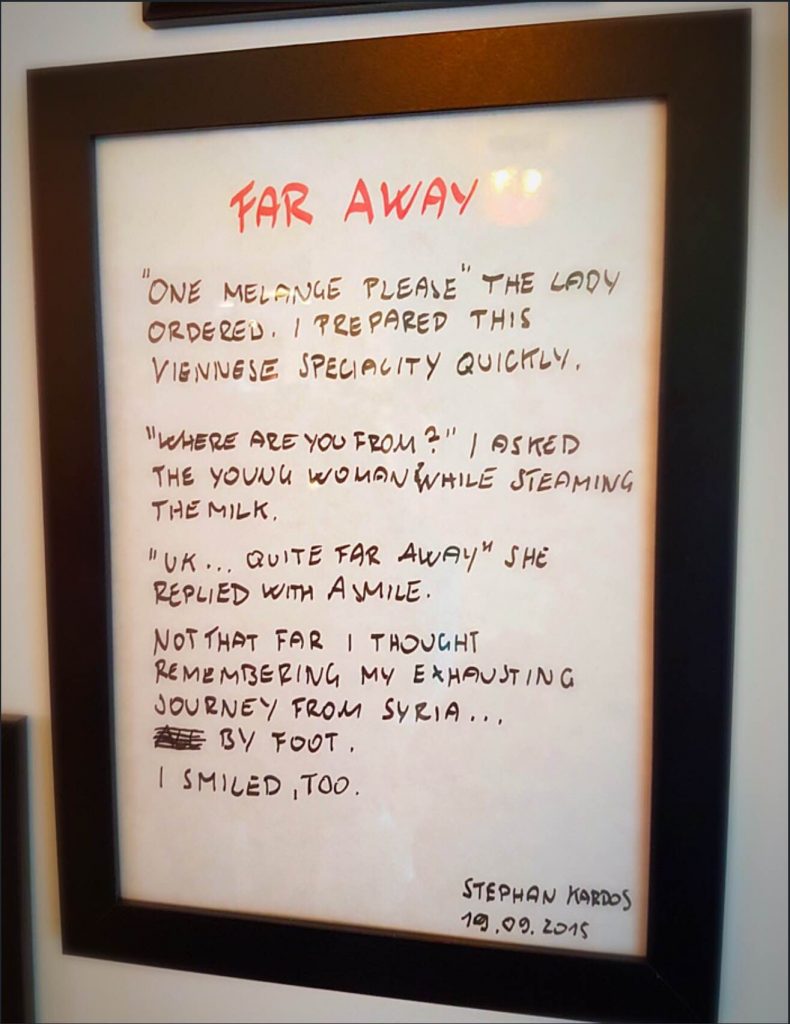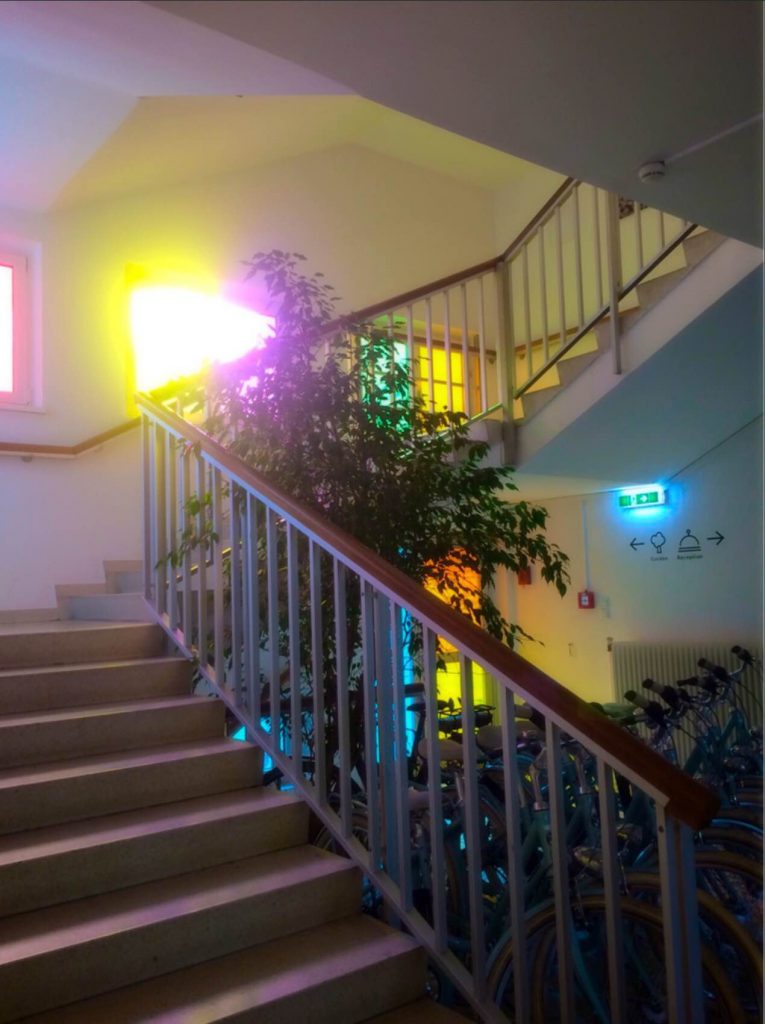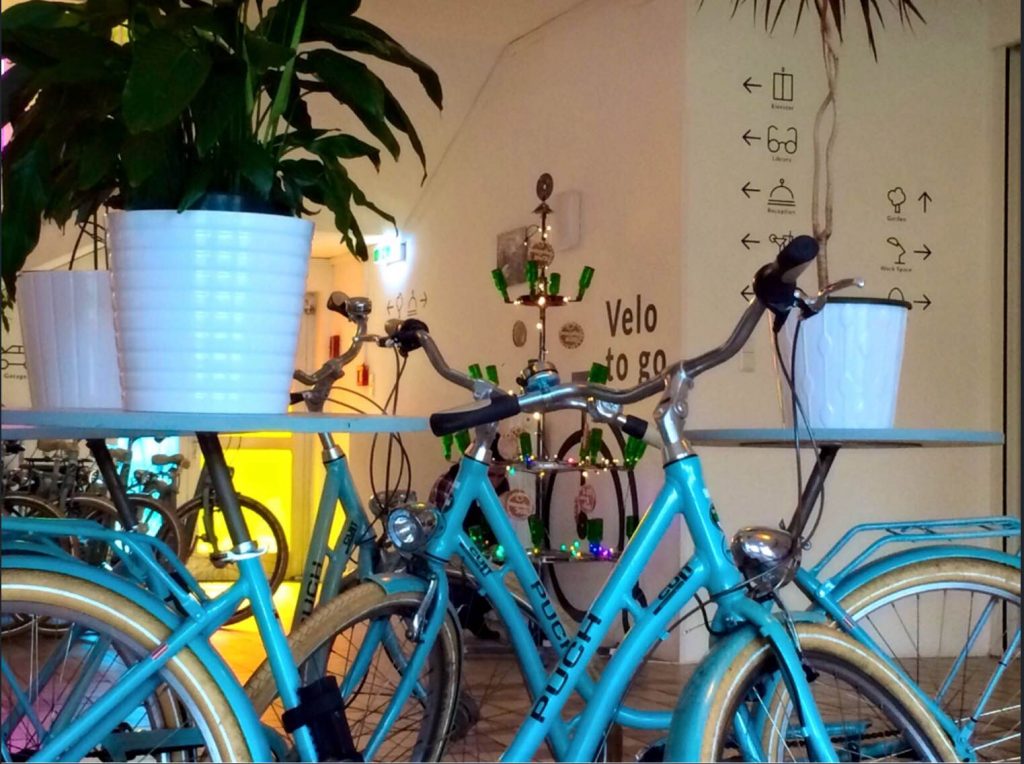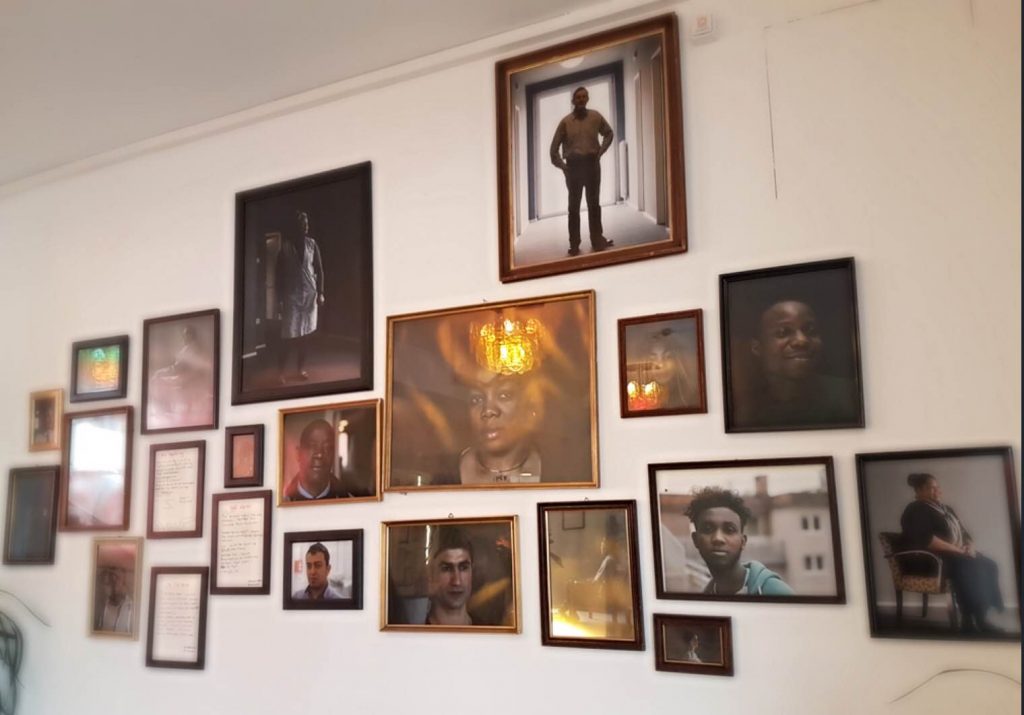
If you are walking around Vienna and find yourself near the Prater Recreation Park, you might come across a seemingly regular corner hotel. However, as soon as you go over the doorstep of Magdas Hotel, you notice this is a unique place: a hotel run by a team of refugees and locals.
Magdas is a social business founded by Caritas Österreich three years ago, with the purpose of matching tourism industry’s demand for employees with refugees in search of employment. Now there are 30 people, 20 of whom have a refugee status, from 14 different nations working in Magdas Hotel.
In order to get a deeper insight into the project, we met with the CEO Gabriela Sonnleitner.
Can you please tell us more about your initiative?
G.S.: The idea for Magdas Hotel came up when we realized that, even with a work permit, the refugees hardly find work in Austria. We tend to focus on the problems and difficulties, hence sometimes we miss out to look at them from another perspective. Therefore, Caritas actually was thinking: “Why don’t we look at what people bring into this country and how can we make use of them in an area where it is difficult to find workers?” In Austria, the tourism industry has always suffered from the lack of employees. So in 2012, we came up with this social business pilot project. There were two years of planning, including nine months of rebuilding and restyling with the help of local volunteers.
How does your recruitment process go?
G.S.: It is a normal process – we work together with different institutions, NGOs, the National Hiring Hall and platforms like “Refugees Work”. Consequently, we have many partners in the recruitment process to find the right persons that can work here.
Do the employees also live here?
G.S.: No, they have their own flats. We don’t offer them housing because we want them to integrate into the community of Vienna; if we offered them rooms, they would stay in without going outside. We support their interaction with local Austrians and a normal lifestyle.
How is the interaction between the refugees and other employees?
G.S.: We call the others “experts” because they train the refugees at work. It is a normal working relation; the experts are often team leaders as they plan the activities and so on. However, we already have some successful examples, like the reception team leader, she is from the refugee target group. She started as a night receptionist, then shifted to the day, improved her skills and now she works as a team leader.
Do you think you attract your clients by your idea or price?
G.S.: Both. People come here and say they read about us in the newspaper and want to see. Still, it happens more and more often that people book us on booking.com because they like the style and price, but are unaware of our social business. Then they turn up and notice something is different. Sometimes they also don’t even realize anything at all.
Have you ever faced a negative reaction towards the project?
G.S.: No, I can say that people find it very positive and they are enthusiastic… If there’s any complaint, then it’s usually about the normal hotel issues that don’t work as smoothly as you would expect. But this happens in other hotels, too. We always discuss if our communication strategy should focus more on the refugee status, but we think that our ads should be balanced because we want to offer an ordinary working environment to our employees. We don’t want to put them on display or showcase them. The guests should get the feeling of the concept itself, but our staff should feel comfortable here too.
Are you happy with the financial sustainability of the project?
G.S.: Yes, we are! Of course, there are many expenses, especially in the first years, which you never can expect. If all things go as planned, next year we will reach a state in which we will be on a zero-zero basis.
Can you please share a story of change, something that you are particularly proud of, in terms of the integration of refugees?
G.S.: Everybody, who is now part of the team, has a good story, I think. They started working, are very stable now and learn new things every day. We help them in their training and motivate them to progress. For example, our 17-year old employee is starting to study now; he is very intelligent and manages everything by himself. And we also have a little fund, donated by our guests, from which we can support the education and training if needed. Also, we offer official traineeships. They can participate in a three-year national training program to get an official diploma.
What has been the biggest challenge you have had to face so far?
G.S.: Everything… [Laughing] No… I think it was to find the right staff and make a good team. You have to put much energy into it, in order to make it work…
Does your project have a deadline?
G.S.: As for now, our pilot project is meant to run for five years. Within that time our primary goal isn’t to make a profit. Of course, we want to run a business and pay back our debts, but our main goal is to train our employees well. And once the project ends, we will decide whether we want to turn it completely into a business and…kind of… buy this building from Caritas, or if we want to give it back, saying “OK, the experiment has worked out well. We’ve shown to the Austrian tourism companies that refugees are a great workforce.” So the idea has been to make others look at us and see that it works out really well and are more open to employing this target group. We want to wake up the tourism industry. Integration is more than possible.
Written by: Maria Antonietta, Dajana Dimitrieska, Yvonne Nguyễn, Aneta Dawidziuk
*This article is a result of the Youth Exchange “Raise Your V.O.I.C.E. 0.3” which focused on raising the voice of marginalized groups across their societies, highlighting the true obstacles they face as the result of the “stigma” put to them by “legitimate society”, or the society living within the margins. The Youth Exchange was hosted by the team of Mladiinfo Austria from 03-08 December 2016, in Vienna, Austria.




